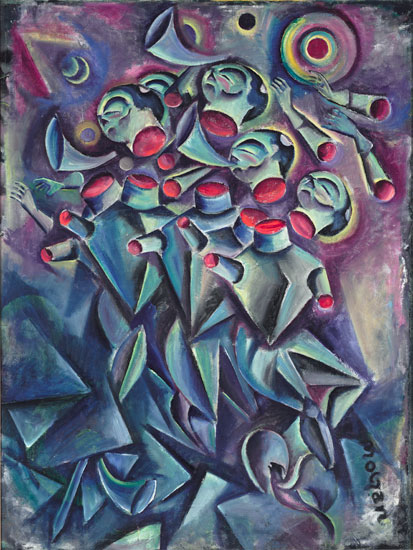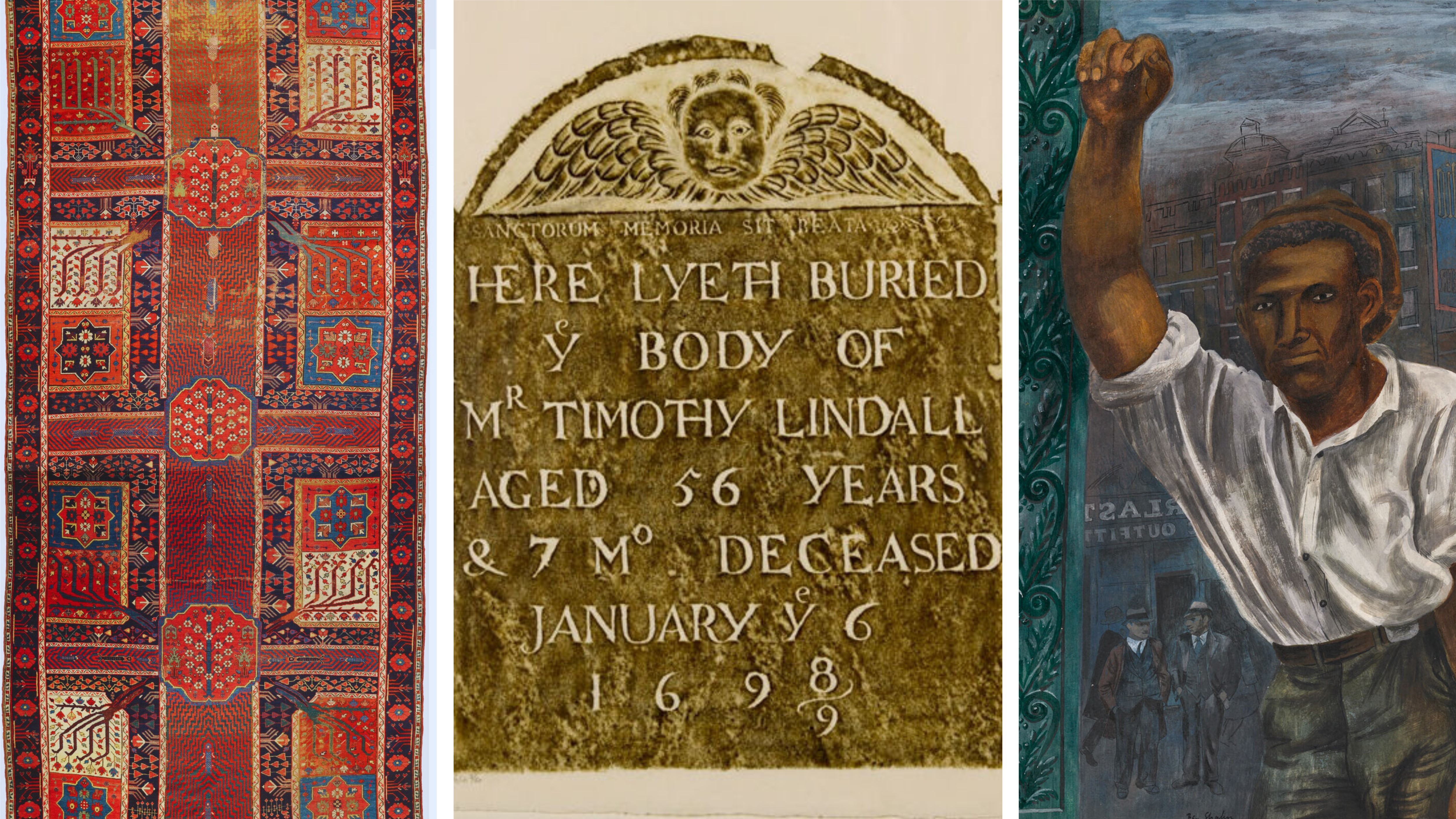Yesterday we heard from Gabriel Dunn, a former painting conservation fellow in the Straus Center for Conservation and Technical Studies at the Harvard Art Museums. During her time at the museums, she treated the dual-sided painting Four Fallen Soldiers in Cosmic Space/Homunculus, by German artist Johannes Molzahn. Dunn removed writing that had been painted (not by the artist) on the verso and restretched the canvas in a specially made dual-sided stretcher.
Today, Lynette Roth, the Daimler-Benz Associate Curator of the Busch-Reisinger Museum, tells us more about this unusual painting, which will be on display when the new facility opens in November. The dual-sided painting will be visible from both sides.
German artist Johannes Molzahn (1892–1965) isn’t a household name, but he was a prominent representative of Herwarth Walden’s Der Sturm gallery in Berlin in the 1910s. Four Fallen Soldiers in Cosmic Space (c. 1916), painted during World War I, is a rare example of the artist’s early work. Molzahn depicts soldiers not as troops outfitted for modern trench warfare, but as armored knights.
While many artists and intellectuals had initially embraced the war, this painting is indicative of the widespread disillusionment as the conflict dragged on. The figures’ decapitated heads and severed hands float from their lax bodies in an abstract “cosmic space.” The painting also reveals the impact of cubism, futurism, and expressionism on Molzahn and other young German artists during this period.
The artist’s decision to reuse the canvas just a few years later for another painting represents the sea change that many artists experienced after World War I. From 1920 until roughly the end of that decade, Molzahn abandoned figuration completely. In Homunculus (1920), he uses brightly colored abstract forms—exact spheres made with a circle, combed sections of paint—in place of the lyrical expressionist figuration seen in the earlier painting. Molzahn, who had grown interested in alchemic and esoteric traditions, chose the title Homunculus to allude to both the man-made creation of a human being and the relationship between spirit and body.




